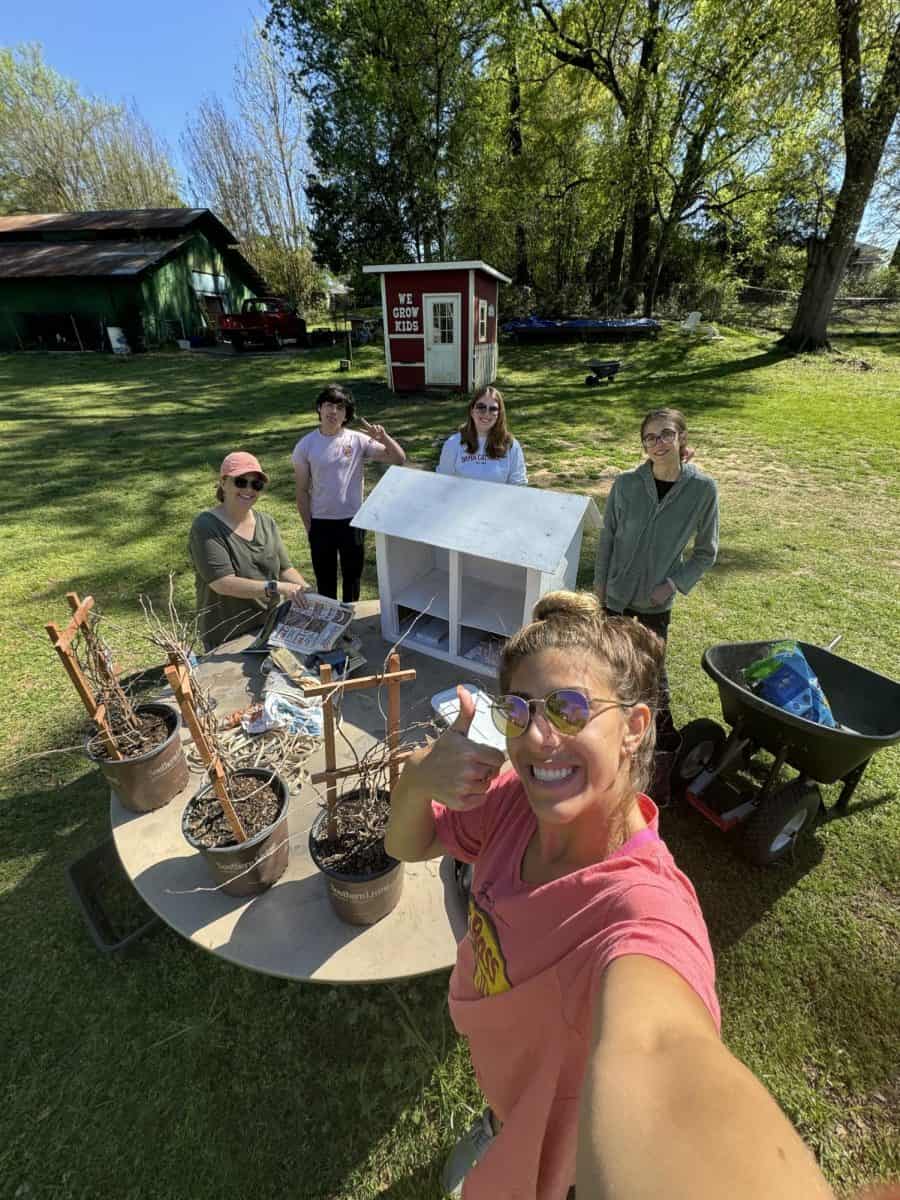New College class 226 Organic Farming has been working with Jeremiah’s Community Garden in Tuscaloosa to help complete tasks at the garden and gain educational experiences.
According to the garden’s website, its mission is “to produce healthy fresh fruits and vegetables, and support the charitable work of feeding the hungry, thereby demonstrating Holy Spirit Catholic Church’s commitment to the common good. The garden also serves as an educational/work site for students, and involves volunteers from the community at large.”
As a part of the class, students have been working in small groups to give back to Jeremiah’s Garden. One of the groups decided to build a free seed library that will have seeds, gardening literature and children’s books.
The group has been working with the Tuscaloosa Public Library to get books for the little library, and it has been able to repurpose 100 books.
McKenzie Collins, a freshman majoring in history, is a part of the free seed library group.
“I personally feel passionately about being able to grow your own food on your own property, and getting families involved with gardening by giving them access to seeds certainly aligns with this personal autonomy,” Collins said. “Our group also wants to encourage the community to spend time outdoors and to provide beginners and advanced gardeners with even more impetus to do so.”
The library should be done by the end of the semester, and students will have access to start growing their own plants for free.
Collins also said there will be kindness rocks at the library for people to paint and bring back to help decorate the area.
Paige Hoss, a senior majoring in human environmental science and another student worker in the library, said that she has been dedicating her time at the University to promote literacy and serve the Tuscaloosa community.
“Our goal with this little free library is to foster a lifelong love of reading and gardening and to empower our community to cultivate their own gardens,” Hoss said. “Growing a garden at home is a great way to learn more about the environment, combat food insecurity, and it provides an opportunity for intergenerational bonding.”









